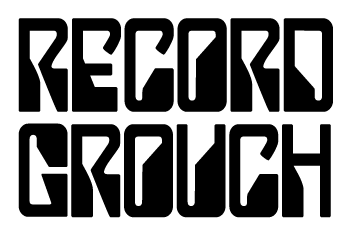 Image 1 of
Image 1 of


Eiko Ishibashi: Evil Does Not Exist LP (Drag City)
When we received this amazing new Eiko Ishibashi score and after reading the one-sheet below, a store debate ensued: Are there any/other precedents in film (or video art) where the music/score comes first, then the visual and/or narrative/plot follows?
And this question raised another connection: Evil Does Not Exist (2024) adds another layer to Ishibashi’s For McCoy (Black Truffle, 2022), an imagined score for Law and Order’s protagonist.
From the one-sheet:
“At play here, though, is much more than fantastic new music from a powerful new film -- it is evidence of a vital recomposition of the relationship of sound to narrative, and composer to filmmaker. The impetus for this came when Eiko was asked by overseas promoters for a program of live performances backed by visuals. After some thought, she asked [Ryusuke] Hamaguchi if he would make something for her to use for this purpose.
This led Hamaguchi to develop the script further, with sequences of dialogue. In the end, he made two works: Gift, a silent film to act as a visual score for a live performance by Ishibashi, and Evil Does Not Exist, his new narrative feature film, which provided the visual material for the silent film Gift and features Eiko's music as its soundtrack. This is a fittingly synergistic exchange within their two disciplines, in which the moods and intentions of the music and the film acted in practical conversation: each one a sovereign statement, made possible by its relationship with the other.
Eiko's compositions are scored for violin, cello, guitar, drums and keyboards. Her longtime partner Jim O'Rourke played the guitar and mixed and mastered the recordings when they were done, eliciting further the necessary nuances of atmosphere and mood that one would expect in one film, much less two!"
When we received this amazing new Eiko Ishibashi score and after reading the one-sheet below, a store debate ensued: Are there any/other precedents in film (or video art) where the music/score comes first, then the visual and/or narrative/plot follows?
And this question raised another connection: Evil Does Not Exist (2024) adds another layer to Ishibashi’s For McCoy (Black Truffle, 2022), an imagined score for Law and Order’s protagonist.
From the one-sheet:
“At play here, though, is much more than fantastic new music from a powerful new film -- it is evidence of a vital recomposition of the relationship of sound to narrative, and composer to filmmaker. The impetus for this came when Eiko was asked by overseas promoters for a program of live performances backed by visuals. After some thought, she asked [Ryusuke] Hamaguchi if he would make something for her to use for this purpose.
This led Hamaguchi to develop the script further, with sequences of dialogue. In the end, he made two works: Gift, a silent film to act as a visual score for a live performance by Ishibashi, and Evil Does Not Exist, his new narrative feature film, which provided the visual material for the silent film Gift and features Eiko's music as its soundtrack. This is a fittingly synergistic exchange within their two disciplines, in which the moods and intentions of the music and the film acted in practical conversation: each one a sovereign statement, made possible by its relationship with the other.
Eiko's compositions are scored for violin, cello, guitar, drums and keyboards. Her longtime partner Jim O'Rourke played the guitar and mixed and mastered the recordings when they were done, eliciting further the necessary nuances of atmosphere and mood that one would expect in one film, much less two!"
When we received this amazing new Eiko Ishibashi score and after reading the one-sheet below, a store debate ensued: Are there any/other precedents in film (or video art) where the music/score comes first, then the visual and/or narrative/plot follows?
And this question raised another connection: Evil Does Not Exist (2024) adds another layer to Ishibashi’s For McCoy (Black Truffle, 2022), an imagined score for Law and Order’s protagonist.
From the one-sheet:
“At play here, though, is much more than fantastic new music from a powerful new film -- it is evidence of a vital recomposition of the relationship of sound to narrative, and composer to filmmaker. The impetus for this came when Eiko was asked by overseas promoters for a program of live performances backed by visuals. After some thought, she asked [Ryusuke] Hamaguchi if he would make something for her to use for this purpose.
This led Hamaguchi to develop the script further, with sequences of dialogue. In the end, he made two works: Gift, a silent film to act as a visual score for a live performance by Ishibashi, and Evil Does Not Exist, his new narrative feature film, which provided the visual material for the silent film Gift and features Eiko's music as its soundtrack. This is a fittingly synergistic exchange within their two disciplines, in which the moods and intentions of the music and the film acted in practical conversation: each one a sovereign statement, made possible by its relationship with the other.
Eiko's compositions are scored for violin, cello, guitar, drums and keyboards. Her longtime partner Jim O'Rourke played the guitar and mixed and mastered the recordings when they were done, eliciting further the necessary nuances of atmosphere and mood that one would expect in one film, much less two!"
